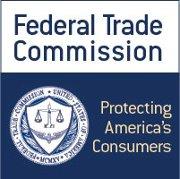
Marketers of Joint Pain Supplement Agree to Settle FTC Charges of Deceptive Advertising, Endorsements
“Companies need solid scientific evidence to back up the health claims they make,” said Jessica Rich, Director of the FTC’s Bureau of Consumer Protection. “Consumers should not have to take it on faith that products claiming to provide pain relief will live up to their billing.”
The FTC’s federal court complaint alleges that Wisconsin-based Supple, LLC and its principals, CEO Peter Apatow and his ex-wife Dr. Monita Poudyal, have marketed Supple through infomercials; social media and other Internet marketing; radio ads; brochures; and in-person pitches at community events. Supple costs approximately $70 for a 24-day supply or $270 for a 144-day supply. From 2011 to 2015, the defendants took in more than $150.6 million from nationwide sales of the supplement.
According to the complaint, infomercials for Supple featured Poudyal acting as a medical show-style host and Apatow, the creator of Supple, acting as the guest. Poudyal and Apatow described Supple as a powerful all-natural drink that provides complete and long-lasting relief from joint pain; treats or relieves chronic or severe pain, including pain caused by all forms of arthritis and fibromyalgia; provides pain relief comparable to drugs or surgery; repairs cartilage; rebuilds joints and entire joint structures; and restores mobility and joint function to consumers with severe mobility restrictions.
The FTC charges that these claims are false or not adequately substantiated. In addition, the Commission alleges that the defendants falsely claimed that Supple is clinically proven to eliminate joint pain.
The complaint also alleges that defendant Poudyal made unsubstantiated “expert endorsement” claims for the product, and falsely represented herself as an independent, impartial medical expert. The complaint further charges that the defendants failed to adequately disclose that Poudyal was married to Apatow during the time she was promoting the product.
The stipulated court order requires the defendants to have scientific evidence to back up any future claims they make about pain relief, disease treatment, and health benefits, and prohibits them from misrepresenting the results of any scientific study. It also prohibits them from deceptively representing that Supple’s endorsers are independent and objective when those endorsers have a close personal or financial stake in the company’s product sales.
The settlement includes a $150 million judgment, most of which has been suspended based on the financial condition of Supple and Apatow. If the defendants are found to have misrepresented their financial condition, the total amount will immediately come due.
The Commission vote authorizing the staff to file the complaint and proposed stipulated final order was 3-0. They were filed in the U.S. District Court for the Eastern District of Wisconsin.
The FTC is a member of the National Prevention Council, which provides coordination and leadership at the federal level regarding prevention, wellness, and health promotion practices. This case is part of the FTC’s ongoing efforts to protect consumers from misleading health advertising and advances the National Prevention Council’s goal of increasing the number of Americans who are healthy at every stage of life.
NOTE: The Commission files a complaint when it has “reason to believe” that the law has been or is being violated and it appears to the Commission that a proceeding is in the public interest. Stipulated final orders have the force of law when approved and signed by the District Court judge.
The Federal Trade Commission works to promote competition, and protect and educate consumers. You can learn more about consumer topics and file a consumer complaint online or by calling 1-877-FTC-HELP (382-4357).
